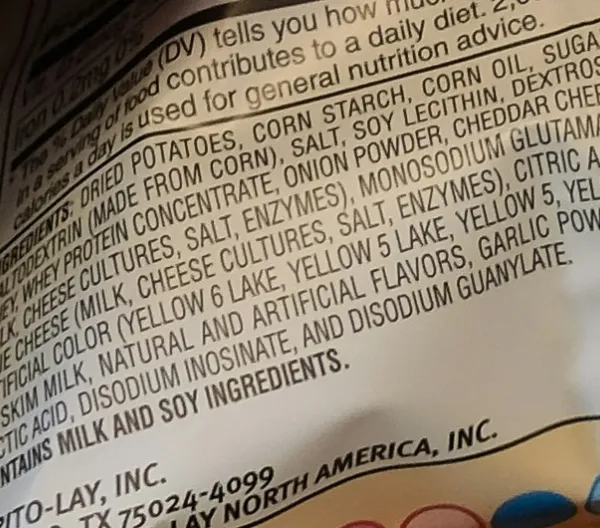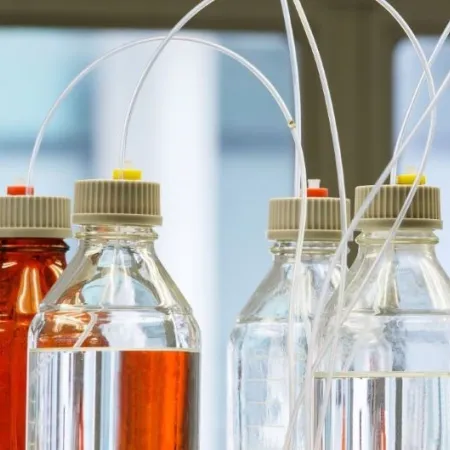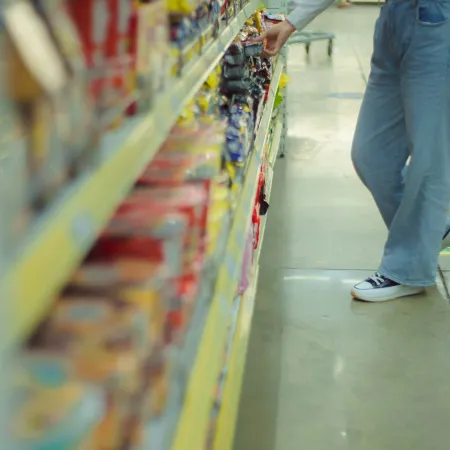This article originally appeared on Food Tank.
You probably assume that before an ingredient ends up in your food, the US Food and Drug Administration has checked it for safety. After all, it’s their job—right?
Here’s the reality: The FDA has approved just one new food additive in the last ten years (a vitamin D2 mushroom powder in 2020). Yet grocery shelves are full of flashy new products, like plant-based meats, gut-healthy sodas, and flavor-blasted snacks (think loaded-taco Doritos).
If the FDA isn’t approving the novel proteins, stabilizers, and artificial flavors in these foods, who is?
That question is at the heart of the New York Food Safety and Chemical Disclosure Act, a first-in-the-nation bill that would shine light on the loophole through which 99 percent of food chemicals enter our food supply without FDA review.
The loophole dates back to a 1958 amendment to the Federal Food, Drug, and Cosmetic Act. Congress gave the FDA authority to review the safety of food additives pre-market, but included a reasonable exception: substances “generally recognized as safe,” or GRAS, didn’t need FDA approval. The idea was to allow common ingredients like flour, salt, and baking soda—those with a long history of safe use—to continue to be used without new regulatory hurdles.
Over time, however, the GRAS exemption has stretched far beyond its original purpose. Today, food companies self-evaluate the safety of nearly all new food chemicals, and reporting this information to the FDA in the form of a “GRAS notice” is completely voluntary. This secrecy means the FDA has no idea how many unreviewed chemicals are in our food—and it can’t protect consumers from risks it doesn’t know exist.
The consequences can be serious. In 2022, a popular meal kit company used a new protein, tara flour, in its French Lentil & Leek Crumbles. Nearly 400 customers got sick, more than 130 were hospitalized, and some needed their gallbladders removed. While the company said its supplier assured them tara flour was GRAS, an FDA investigation found no data supporting the ingredient’s safe use in food.
The GRAS loophole needs reform. HHS Secretary Robert F. Kennedy Jr. and his “Make America Healthy Again” (MAHA) movement have highlighted GRAS reform as a priority, citing exposure to harmful additives as a driver of chronic disease. The FDA has announced plans to propose a rule requiring companies to submit GRAS notices, a step that mirrors the approach taken in the New York bill. But the plan falls short: it does not include a rigorous, transparent safety review, and there’s no guarantee a proposed rule will be finalized, given fierce industry opposition. Congressional efforts to reform GRAS, long pre-dating Secretary Kennedy’s attention to the issue, have repeatedly stalled, and the FDA currently lacks the funding and resources to evaluate all new food chemicals.
With federal reform lagging, states are stepping up.
First introduced in 2024, the Food Safety and Chemical Disclosure Act builds on momentum generated from California’s 2023 ban of four harmful food chemicals. Since then, the MAHA movement has helped elevate food chemical safety into a bipartisan concern, with bills restricting or banning chemicals introduced in over 30 states.
While bans can remove harmful additives from the food supply, they don’t fix the underlying problem. The approach is like pulling weeds without digging up the roots—new, unsafe chemicals will keep emerging.
New York’s bill goes deeper, targeting the root cause of the problem: the GRAS system itself. Companies that opt out of submitting a GRAS notice to FDA will have to disclose that information to New York State, which will post the information in a public database. This transparency will empower regulators, advocates, and consumers to examine hidden safety data and identify risks before people are harmed.
Food Giants are fighting to keep this information secret, claiming the bill will drive up prices and harm small businesses. In reality, it simply requires large food manufacturers to post safety data they should already have—and their resistance suggests they have something to hide. Meanwhile, small business owners, parents, farmers, and community advocates are fighting for safer food, mobilizing to pass this legislation in 2026.
Passing the Food Safety and Chemical Disclosure Act would be a major step forward, ending the era of secret GRAS in New York. But transparency alone won’t guarantee safety. The GRAS loophole must be fully closed, requiring all food additives to undergo rigorous FDA review before they can be used. This will take sustained, nationwide pressure. New York’s bill is not the end of the fight—it is the essential foundation for a truly transparent and safe food system.
Support our work to protect children and demand transparency in food safety in New York.
Tell your policymakers to support the Food Safety and Chemical Disclosure Act








